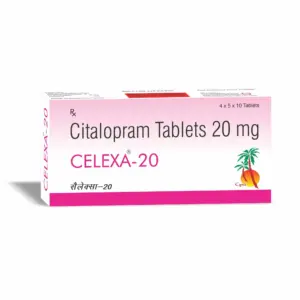When it comes to allergy relief, many individuals find themselves comparing two popular antihistamines: Benadryl and Hydroxyzine. Both medications are used to treat symptoms of allergies, but they have distinct characteristics and side effects that can influence their effectiveness for different individuals. In this article, we’ll explore how these two medications compare in terms of effectiveness, uses, and side effects. Understanding these differences can help guide individuals in choosing the right antihistamine to meet their specific needs.
Antihistamines are medications that block histamine, a substance in the body that causes allergic symptoms. These symptoms can include itching, sneezing, runny nose, and hives. By blocking histamine, antihistamines like Benadryl and Hydroxyzine help alleviate these uncomfortable symptoms. However, not all antihistamines function in the same way or have the same effects, which is why it’s essential to understand their individual properties.
Antihistamines are designed to counteract the effects of histamine, a chemical released by the immune system in response to allergens. Histamine binds to receptors in the body, causing symptoms such as swelling, redness, and irritation. By blocking these receptors, antihistamines reduce the severity of allergic reactions. This makes them particularly useful for managing conditions like hay fever, hives, and other allergic responses.
There are two main types of antihistamines: first-generation and second-generation. First-generation antihistamines, such as Benadryl, are known for their sedative effects due to their ability to cross the blood-brain barrier. Second-generation antihistamines are less likely to cause drowsiness and are generally preferred for long-term management of allergies. Understanding the differences between these types can help individuals choose the most appropriate medication for their needs.
Antihistamines are not only used to treat allergy symptoms but also have other applications. They can be used to manage conditions such as motion sickness, insomnia, and even anxiety. The versatility of these medications makes them a valuable tool in both over-the-counter and prescription forms. However, it’s crucial to use them appropriately to avoid unwanted side effects and interactions with other medications.
Benadryl, also known by its generic name diphenhydramine, is one of the most well-known over-the-counter antihistamines. It is commonly used for quick relief of allergy symptoms and is also known for its sedative properties. This means that it can make you feel drowsy, which is why it’s sometimes used as a sleep aid. Understanding its uses, side effects, and the contexts in which it’s most effective can help users make informed decisions.
Benadryl is a versatile medication that serves multiple purposes beyond allergy relief.
- Allergy Relief: Provides relief from symptoms like itching, sneezing, and runny nose. This makes it a go-to choice for individuals needing fast action against acute allergic reactions.
- Sleep Aid: Due to its sedative effects, it is sometimes used to help with sleep. This is particularly useful for individuals who struggle with insomnia and are looking for a non-prescription option.
- Motion Sickness: Can also help prevent and treat nausea, vomiting, and dizziness caused by motion sickness. It is a convenient option for travelers who want to avoid discomfort during trips.
While Benadryl is effective for many people, it comes with a list of potential side effects. The most common side effect is drowsiness, which can be both a benefit and a drawback depending on your needs.
- Drowsiness: A prevalent side effect that can impair alertness. This makes it unsuitable for individuals who need to perform tasks requiring concentration.
- Dry Mouth: Often reported, this can be uncomfortable but manageable with adequate hydration.
- Dizziness and Blurred Vision: These can occur and may affect one’s ability to perform daily tasks safely. It’s important for users to monitor these symptoms and adjust activities accordingly.
- Constipation: A less common side effect but one that can be troublesome for some individuals. Staying hydrated and maintaining a balanced diet can help mitigate this issue.

Hydroxyzine: An Overview
Hydroxyzine is another antihistamine often compared to Benadryl. It is available in both hydroxyzine hydrochloride and hydroxyzine pamoate forms. Unlike Benadryl, Hydroxyzine is generally prescribed rather than purchased over-the-counter. This prescription status often means that its use is tailored to more specific health needs under medical supervision.
Uses of Hydroxyzine
Hydroxyzine is prescribed for a variety of conditions beyond just allergy relief.
- Allergy Relief: Like Benadryl, Hydroxyzine is used to treat allergy symptoms. It is effective for both seasonal allergies and chronic urticaria (hives).
- Anxiety and Tension: It is also prescribed to help manage anxiety and tension. The calming effects of Hydroxyzine make it a useful option for individuals dealing with stress-related disorders.
- Sedation: Used in some cases to help manage sleep disorders due to its calming effects. It can be beneficial for patients who need assistance in managing insomnia alongside anxiety.
Hydroxyzine Side Effects
Hydroxyzine also causes drowsiness, but it may have fewer sedative effects compared to Benadryl for some individuals.
- Drowsiness: Although less pronounced than with Benadryl, it can still be significant. Patients should be cautious when engaging in activities that require full alertness.
- Dry Mouth and Headache: Common side effects that can usually be managed with lifestyle adjustments. Regular hydration and over-the-counter pain relief can help reduce discomfort.
- Blurred Vision: Similar to Benadryl, this can affect daily functioning. Users should be aware of this possibility and take precautions if they experience such symptoms.
Comparing Effectiveness
When comparing the effectiveness of Benadryl vs Hydroxyzine, it’s important to consider the specific needs and circumstances of the individual. Both medications are effective in treating allergy symptoms, but their additional uses and side effects may make one more suitable than the other for certain people.
Speed of Relief
Benadryl is known for its fast-acting relief, which can be beneficial if you need quick alleviation of symptoms. It is often the preferred choice for acute allergic reactions due to its rapid onset of action. However, the drowsiness it causes can be a drawback if you need to remain alert.
Hydroxyzine also provides effective relief but may take a little longer to take effect compared to Benadryl. It is often preferred for ongoing management of allergy symptoms, anxiety, or tension due to its longer-lasting effects and dual action as an anti-anxiety medication. This makes it a suitable option for individuals looking for a more sustained approach to treatment.
Duration of Action
The duration of action can be a crucial factor in choosing between these medications. Benadryl’s effects are short-lived, which may require multiple doses throughout the day for continuous relief. This can be inconvenient for some users. Hydroxyzine, on the other hand, offers longer-lasting effects, reducing the need for frequent dosing and providing more consistent symptom control.
Suitability for Long-Term Use
For individuals considering long-term management of allergies or anxiety, Hydroxyzine may be the more appropriate choice. Its prescription nature allows for medical oversight, ensuring that the treatment plan is adjusted as needed over time. Benadryl’s short duration and sedative effects make it less ideal for chronic management but perfect for immediate, short-term relief.
Who Should Choose Benadryl?
Benadryl is typically a good choice for those who need immediate relief from allergy symptoms and do not mind the potential drowsiness. It is also a convenient option for those needing an over-the-counter solution. Understanding its benefits and limitations can help individuals decide if it’s the right option for them.
Considerations
- Ideal for Temporary Relief: Best suited for short-term use, especially for acute allergic reactions that need rapid intervention.
- Suitable for Individuals Who Need a Sleep Aid: Its sedative properties make it beneficial for those seeking help with occasional sleeplessness.
- Not Recommended for Tasks Requiring Alertness: Due to its drowsiness effect, it is not advisable for use when alertness is necessary, such as driving or operating machinery.
Who Should Choose Hydroxyzine?
Hydroxyzine is often better suited for individuals who require long-term management of allergies, anxiety, or tension. Its prescription status allows for a more tailored approach to treatment under a healthcare provider’s guidance. This can be particularly advantageous for individuals with complex medical needs.
Considerations
- Effective for Ongoing Allergy Management: Ideal for individuals needing continuous symptom control without the need for frequent dosing.
- Suitable for Individuals with Anxiety or Tension: Its calming effects make it an excellent choice for those managing anxiety alongside allergies.
- Requires a Prescription: This means that its use is monitored and adjusted by a healthcare professional, ensuring safety and efficacy over time.

Final Thoughts
In summary, both Benadryl and Hydroxyzine are effective antihistamines for treating allergy symptoms, but they come with different benefits and drawbacks. Benadryl offers quick relief and is easily accessible over-the-counter, making it a practical choice for immediate needs. Conversely, Hydroxyzine provides a more controlled approach with additional benefits for anxiety and tension, making it suitable for long-term management under medical supervision.
When choosing between Benadryl and Hydroxyzine, consider your specific needs, the potential side effects, and consult with a healthcare provider to determine the best option for your situation. By understanding the differences between these medications, you can make an informed decision that leads to effective relief from allergies. It’s important to weigh the pros and cons of each medication and select the one that aligns with your health goals and lifestyle.



